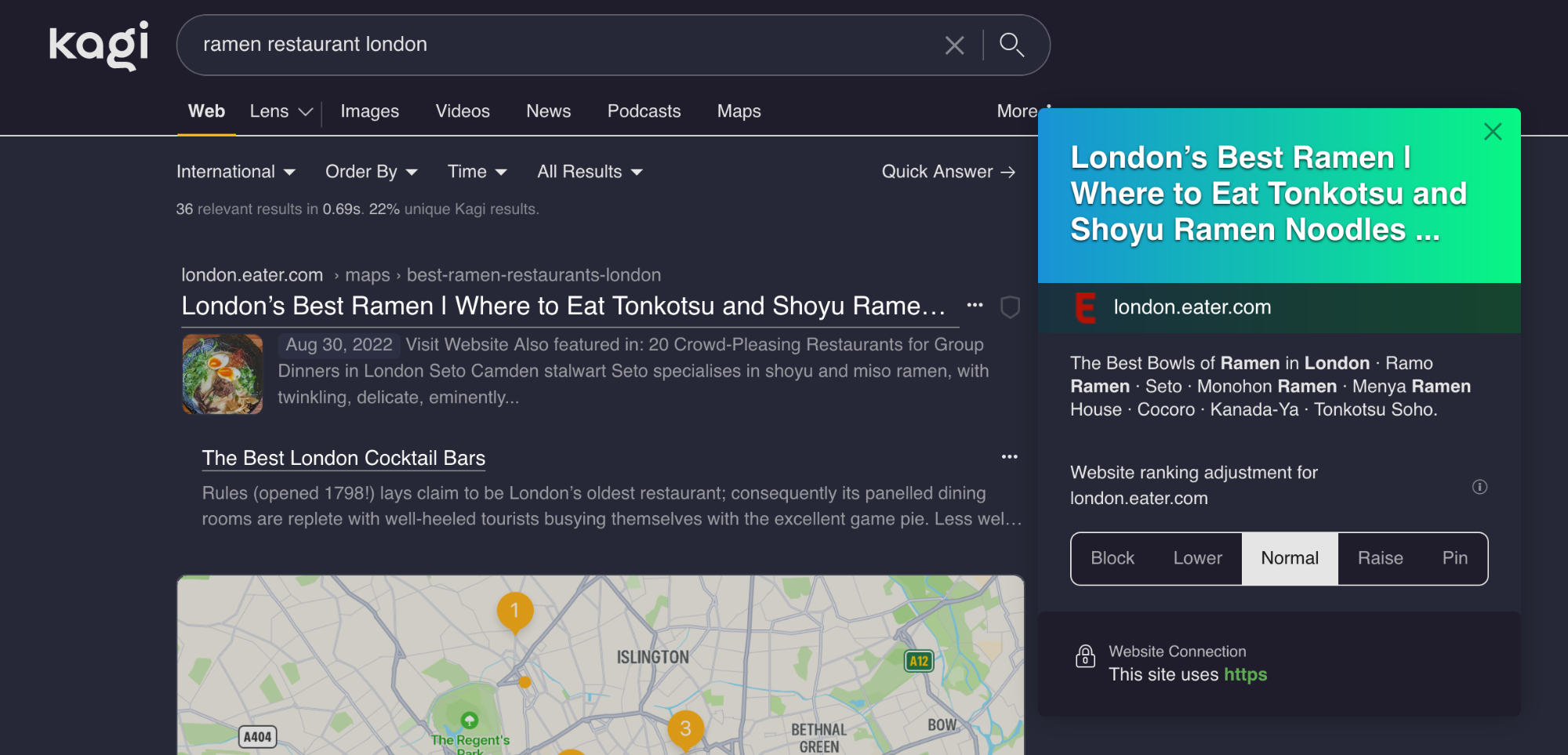Why I Pay For Search
2024-05-08 UPDATE: Unfortunately, since writing this article it's become clear that the CEO of Kagi is a bit of a condescending dickhead who wants to push everyone towards using AI. So I'm on the lookout for an alternative, but I can't find a search engine which is willing to take my money rather than showing me ads so if you know of one please do reach out.
--
Search is one of those foundations of the modern Internet. The Internet is a wild and wonderful place with all manner of strange and useful information to be found, but without the means to sift through it all that abundance is wasted.
For a long time Google was the de-facto standard for searching the Internet. When it was launched it offered a simplistic and effective way to search without all the cruft that other search engines at the time were known for. However, in recent years its quality and usability has decreased, at least in my experience. With Google's main business model being user tracking and serving ads, it was just a matter of time before its monetary motivations would result in a degraded user experience. I am someone who goes out of their way to avoid being tracked as much as possible and it may be that my experience with Google's search results being so bad is because it doesn't know enough about me to give me helpful results. With Google being the biggest search engine in the world it also faces a lot of pressure trying to combat people gaming the system to improve their placement in the search results. All this coupled with its motivation to steer people towards paid placements has resulted in a search experience that just flat out sucks. But this is Google.. what alternative do we have?
Enter Kagi, a search engine that you have to pay a subscription fee to use. This is probably a weird and alien concept in the modern web where most services are funded by tracking and advertisement, but I welcome the opportunity to pay for something that I actively use. I search for hundreds of things every month and I find comfort in knowing that my search queries aren't being collected and used to build a profile on me. However, this need is particular to me and my predilections, so what argument can I make for using Kagi outside of the desire for privacy?
Well, the search results are just better. If Kagi didn't track me, but served me pointless results I wouldn't have been sticking around for as long as I have (6 months per the writing of this article). It accomplishes this using its own indexing and search algorithm, which I'm assuming is pretty well constructed given the results, but also with a feature that I haven't seen in any other search engine: the ability for me to manually adjust which sites I want to see more or less of.

If I see a result from a website I don't like, I can specify that I want to lower its ranking. I can also flat out block certain sites or pin them to the top if they show up in the results for my query. This is such a killer feature that it's worth the price of admission by itself (which is currently $10/month). This, coupled with the ability to create lenses that focus your search within specific fields, and being able to disable inline results (like maps, images, news, etc.) means that I'm getting the power to create a search experience catered to me.
Using Kagi gives me an experience that is surprisingly uncommon in the modern web: the interests of the service aligns with my own. I'm here because I want to search for things, they're here to let me search for things. There is no ulterior motive behind them providing the service, nor alternative revenue stream they're trying to push me towards. They do search; I want to do search; so here we are. I also understand that providing a service like this isn't free, and I am in the privileged position where I can afford to pay for it, so I do. It's actually quite refreshing to have this kind of transparent relationship with an online service and I highly recommend it.
For the sake of disclosure I want to say that I am in no way affiliated with Kagi nor have I been paid/coerced/told to write this. I just think they're neat.